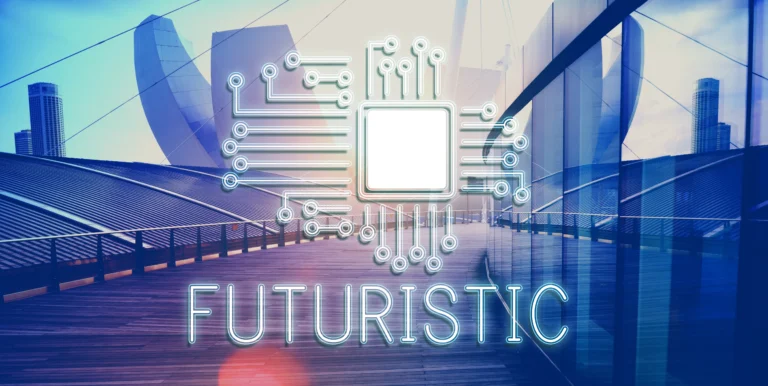AI in Retail: Is AI Making Retailers Rich?

AI in Retail – The marriage of Artificial Intelligence and the retail industry has ignited a firestorm of speculation- Is this union of cutting-edge technology and consumerism truly creating a financial goldmine for retailers? While the integration of AI does hold the potential to revolutionize operations and boost profits, it is not a magic wand that guarantees success.
Savvy retailers must tread cautiously and carefully evaluate how to seamlessly weave AI into their unique business model, all while ensuring they have the proper resources to support it. Additionally, AI raises some thought-provoking ethical questions, such as privacy and job displacement, that retailers must consider before taking the plunge.
Overview of how AI is being used in retail
Artificial intelligence integration in the retail industry is revolutionizing how businesses operate. From virtual assistants to predictive analytics, retailers are harnessing the power of AI to gain a competitive edge.
Types of AI used in retail:

- Chatbots: -Provide instant customer service, 24/7 -Answer customer questions and help them navigate the website
- Predictive analytics: -Allow retailers to anticipate customer needs -Optimize inventory and stock management
- Personalization: -Create customized shopping experiences for customers -Provide personalized product recommendations
Examples of retailers using AI:
- Amazon: -Uses Alexa, a virtual assistant, to allow customers to shop using just their voice
- Walmart: -Uses AI-powered cameras to monitor store shelves and improve inventory management
Leading retailers like Amazon and Walmart are at the forefront of this AI revolution. The use of AI in retail is a game-changer and retailers who are not keeping up risk being left behind.
Potential benefits of AI for retailers
The potential benefits of Artificial Intelligence for retailers are numerous, and the technology is quickly becoming a must-have for any business looking to stay competitive.

How AI can increase efficiency and sales for retailers
- Automation of repetitive tasks: -Allows employees to focus on more important tasks -Improves efficiency and productivity
- Predictive analytics: -Allows retailers to anticipate customer needs -Optimizes inventory and stock management
- Personalization: -Provides customers with personalized product recommendations -Enhances the customer experience
Data and statistics on the financial impact of AI on retail businesses
- A study conducted by Accenture found that retailers who fully embrace AI could boost their operating margins by an average of 60%
- Another study by Boston Consulting Group found that retailers who adopt AI-driven personalization could increase revenues by up to 6-10%
Explain how AI can be used to create personalized shopping experiences for consumers
- Personalized product recommendations:
- Uses customer data and browsing history to recommend products
- Virtual assistants: -Can help customers find products and answer questions
- Chatbots: -Provide customer service 24/7
- Personalized coupons and discounts -Offers customized discounts based on customers’ purchase history.
AI in Retail is not only transforming the way retailers operate but also how customers shop. With the ability to increase efficiency, boost sales, and create personalized shopping experiences, it’s no wonder that retailers are turning to AI to stay ahead of the game.
Potential drawbacks of AI for retailers
While the potential benefits of Artificial Intelligence for retailers are undeniable, there are also some potential drawbacks to consider.

Ethical concerns about using AI in retail
- Privacy: -Retailers have access to vast amounts of customer data, which raises concerns about how that data is being used and protected
- Job displacement: -Automation of certain tasks may lead to job loss for employees
Impact on consumers and employees
- Transparency: -Consumers may not be aware of how their data is being used -Employees may be uncertain about their roles and responsibilities in an AI-driven workplace
- Inequality:
- Consumers with limited access to technology or digital literacy may struggle to navigate AI-driven retail experiences. -Employees may be negatively impacted by job displacement, lack of training, and inadequate compensation
Long-term implications of AI on the retail industry

- Dependence: -Retailers may become too reliant on AI, leading to a lack of innovation
- Monopoly: -Large retailers with access to more resources may have an unfair advantage over smaller businesses
AI in Retail has the power to revolutionize the industry, but it’s important to consider the potential drawbacks and address them proactively. The integration of AI in retail should be done with transparency, accountability, and fairness.
FAQ
As the use of Artificial Intelligence in retail becomes more prevalent, it’s natural to have questions and misconceptions about how it works and its impact. Here are some frequently asked questions and answers to help you better understand the topic.
What is AI in retail?
AI in retail refers to the use of Artificial Intelligence technology in the retail industry, such as chatbots, predictive analytics, and personalization.
Will AI in retail lead to job displacement for retail employees?
While automation of certain tasks may lead to job loss, AI can also create new jobs, such as data analysts, AI engineers, and AI-trained employees.
Can AI in retail create personalized shopping experiences for consumers?
Yes, AI can use customer data and browsing history to recommend products, provide personalized coupons and discounts, and offer virtual assistants to help customers find products and answer questions.
Are there any ethical concerns associated with AI in retail?
Yes, there are concerns about privacy, job displacement, and transparency. Retailers should implement policies and procedures that ensure the responsible use of AI and customer data.
What are the long-term implications of AI in retail?
AI has the potential to revolutionize the retail industry, but it’s important to consider the potential drawbacks, such as dependence on AI and monopoly by large retailers.
What are additional resources for further reading?
“The Impact of Artificial Intelligence on the Retail Industry” by McKinsey
“The Future of Retail: How Artificial Intelligence is Transforming the Industry” by Forbes
“The Impact of Artificial Intelligence on Employment and Public Policy” by the Brookings Institution
AI in Retail is a dynamic and ever-evolving topic. We hope this FAQ has helped to clear up any misconceptions and provided you with a better understanding of the potential benefits and drawbacks of AI in retail.











